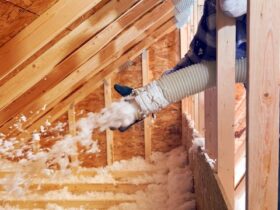The real estate market is complex, and numerous factors influence property values. One often overlooked but crucial element is the role of building inspections. These assessments provide valuable insights into a property’s condition, safety, and compliance with local regulations. Building inspections comprehensively evaluate a property’s structural integrity, systems, and overall condition.
Building inspections can impact property value
- Uncovering hidden issues
The primary benefit of building inspections is their ability to reveal hidden problems that may not be apparent during a casual walkthrough. These could range from minor cosmetic to major structural concerns. When issues are discovered, they decrease property value, as potential buyers or current owners must factor in the cost of repairs or renovations.
- Ensuring safety and compliance
Building inspections help ensure that a property meets local safety codes and regulations. A property that passes inspection demonstrates these standards, potentially increasing its value. Conversely, a property that fails to meet safety requirements may decrease its value once necessary improvements are made.
- Providing negotiation leverage
The results of a building inspection serve as a powerful negotiation tool for buyers. Buyers negotiate a lower purchase price if uncovered during the inspection and the seller repairs before closing. Change sentence structure and use different word choices to make your sentences less robotic-sounding. This will save the buyer money and potentially the final sale price of the property.
- Enhancing buyer confidence
A clean bill from a building inspection boosts buyer confidence. Properties with positive inspection reports are often perceived as more valuable and desirable, potentially leading to quicker sales and better offers. This increased confidence translates into a higher property in the market.
- Identifying necessary upgrades
Building inspections highlight areas where upgrades or improvements are needed. While this might initially seem negative, it presents opportunities for increasing property value. By addressing this proactively, property owners make targeted investments that improve the quality and appeal of their property.
- Influencing insurance rates
Building inspections reveal a property’s condition, which impacts insurance premiums. A well-maintained property without qualifying for lower insurance rates can be an attractive selling point and contribute to higher property values.
- Affecting financing options
Lenders often require building inspections before approving mortgages. A favourable inspection report facilitates smoother financing processes and improves loan terms. This ease of financing makes a property more attractive to buyers and positively influences its market value.
- Long-term value preservation
Regular building inspections help property owners identify and address maintenance issues early on. This proactive approach to property care prevents minor problems from escalating into major, costly repairs. Over time, this consistent maintenance helps preserve and increase property value.
Source real estate experts association it’s important to note that while building inspections impact property value, the extent of this impact vary depending on market conditions, location, and other factors. In some cases, minor issues uncovered during an inspection may have little effect on a property’s value, especially in highly competitive markets where demand outstrips supply.
Property owners and buyers should view building inspections as valuable tools for making informed decisions. Building inspections are definitive determinants of property value. A thorough inspection provides a clearer picture of a property’s condition, more accurate valuation, and informed investment decisions.











